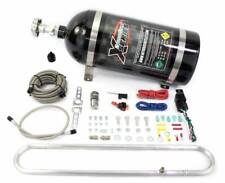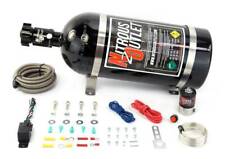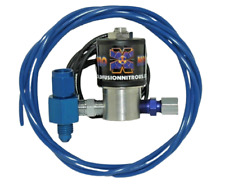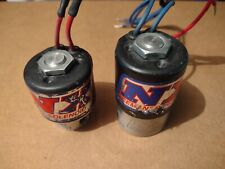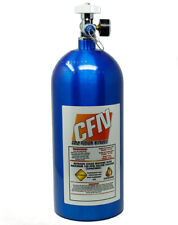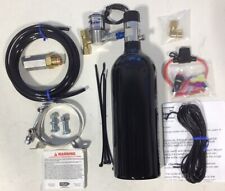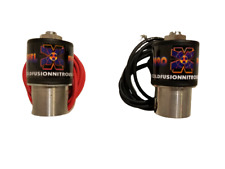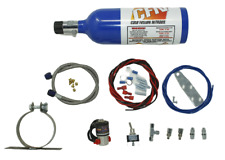Top 10 Most Fuel-Efficient Luxury SUVs

A new breed of sport utility vehicle called the ‘crossover’ is skyrocketing in popularity and dominates the list of most fuel-efficient SUVs for 2008.
Luxury auto makers are rushing out to get crossovers in their lineups as crossover sales lead the industry. While new car sales are down 2.8 percent in 2007, the crossover segments has enjoyed an increase of 23.5 percent to 1,749,680 units sold from January to September.
So if you’re in the market for a crossover and you’re looking to spend a little more on it than a Honda CR-V, Forbes list of the Top 10 Most Fuel-Efficient Luxury SUVs may just help you out. Remember to read the article below the gallery for details on crossovers.
Note: We don’t consider the Mercedes-Benz R-Class an SUV but apparently Mercedes has it listed under SUVs on their website (mbusa.com)
Click through for the full list.
Top 10 Most Fuel-Efficient Luxury SUVs (with combined fuel-economy and pricing):
10. 2008 Infiniti FX35 – 17.5 mpg – $38,050
9. 2008 Land Rover LR2 – 18 mpg – $33,985
8. 2008 Lincoln MKX – 18.5 mpg – $35, 420
7. 2008 Acura RDX – 19 mpg – $33,195
6. 2008 BMW X3 – 19.5 mpg – $38,000
5. 2008 Lexus RX 350 – 19.5 mpg – $37,400
4. 2008 Mercedes-Benz GL320 CDI – 21 mpg – $53,775
3. 2008 Mercedes-Benz ML320 CDI – 21 mpg – $45,425
2. 2008 Mercedes-Benz R320 CDI 4MATIC – 21 mpg – $46,175
1. 2008 Lexus RX 400h – 25 mpg – $41,180
Related Stories:
The “Greenest” SUV on the Road
The Newest Addition to the Buick Family: The Enclave
Rumbling and Tumbling Along: Hummer H3
Lincoln Stretches out with the 2008 Navigator
What SUV is Right for you?
Top Most Fuel-Efficient Luxury SUVs Gallery:
View Slideshow
Top 10 Most Fuel-Efficient Luxury SUVs
A new breed of sport utility vehicle called the ‘crossover’ is skyrocketing in popularity and dominates the list of most fuel-efficient SUVs for 2008.
by Michael Bettencourt
All of the most fuel-efficient sport utility vehicles forsake their truck roots for car-like qualities that not only improve fuel economy, but make for a better ride on the road. A lot of people, from automotive analysts to manufacturers to marketers, are pretty excited about the growth prospects of this new breed of SUV called the “crossover.”
Sales of these vehicles are climbing while traditional SUV sales are declining. One reason often cited in these times of lofty gas prices is crossovers” better fuel economy. But there are other factors at play.
“This year, the traditional SUV market will fall below 2 million units sold in the U.S. for the first time since 1995,” says George Pipas, U.S. sales analysis manager at Ford, the company that perhaps reaped the most rewards from the 1990s SUV craze with its then best-selling Ford Explorer and Lincoln Navigator. “At the same time, the crossover utility market this year will be 2.7 to 2.8 million,” a fivefold increase since 2000.
Back then, the term “crossover” didn”t even exist, unless you were talking about a basketball move; these in-between vehicles were often dubbed “sport-cutes” or “cute-utes” by industry insiders. Now they can be called crossover utility vehicles, or CUVs. Regardless of the name, it”s an incredible growth rate considering the slight decline in overall SUV sales since then. “Crossover utility vehicles have been, and, in our view, will continue to be the fastest growing category in the U.S. industry,” Pipas says.
What are Crossovers?
Named for the way they blend the characteristics of cars, minivans and SUVs, crossovers are often touted for combining the high seating position and utility of an SUV with the better on-road handling and less stigmatized image of a car.
There”s another meaningful, if less visible, difference: Like cars, crossovers are built on unibody platforms, which are typically smaller and lighter than traditional SUV body-on-frame designs that are based on pickup trucks.
Both crossovers and SUVs usually offer four-wheel drive (4WD) or all-wheel drive (AWD) systems; 4WD is intended more for serious off-road use, while AWD implies a system designed more for foul-weather security and traction on paved roads.
In exchange for their better ride and on-road handling, crossovers lose some of the ruggedness of traditional SUVs, such as the ability to tow or haul extremely heavy loads and, in some cases, the ability to tackle rough terrain. Considering that most SUV buyers rarely, if ever, go off road, the compromises crossovers create aren”t an issue for many drivers.
The Crossover Advantage
Gas mileage may be a significant reason for the popularity of crossovers over traditional SUVs, but it”s far from the only reason, say auto industry watchers. “Fuel economy definitely plays a part in what makes the new crop of CUVs more popular than the SUVs they”re replacing, but their newfound popularity goes beyond that,” says Aaron Bragman, an analyst at research firm Global Insight.
Crossovers ride better, are generally quieter, handle more capably and can swallow nearly as much gear, cargo and kids as SUVs can. They even provide some of the rough-and-tumble image that made SUVs such a hit. “At the height of their popularity, SUVs were seen as much for styling statements as they were for utility,” Bragman says. “People are starting to realize that you can have the utility in a much more sensible package.”
Yet while crossovers and SUVs may share a bit in the styling department, some in the auto industry don”t think it”s fair to compare the two. “Crossovers and SUVs are distinct markets,” says John M. MacDonald, a General Motors spokesperson. “There might be some [SUV and crossover] cross-shopping done, but there”s also some done between sedans, wagons and crossovers.”
In fact, some of the closest competition for crossovers may not come from their SUV fraternal twins, but from car-based minivan cousins. “Crossovers are favored by consumers currently looking for a vehicle beyond the minivan, although I believe that the minivan will survive its current status as unfashionable,” says Paul Taylor, chief economist for the National Auto Dealers Association. “Both crossovers and minivans represent practical boxes that are quiet, can be parked easily in a standard parking spot, and ride comfortably and quietly.”
What’s in a Name?
Then there”s the issue of the name. Some might say that SUVs have a bad reputation, and that crossovers were developed to provide many similar features, without the burden of the name. GM”s MacDonald doesn”t see a negative connotation to the term “SUV.” He thinks it merely implies a larger, more powerful vehicle that is more capable when it comes to towing or going off-road.
Yet Nasseem Javed, founder and president of New York-based corporate naming consultancy ABC Namebank, sees quite a bit of consumer skepticism regarding the term SUV. “The monster vehicle of the post-Robocop era, when the first chapter of the Iraq War was booming for a decade, has passed its prime,” Javed says. “With today’s eco-warrior mindset and increasing gas prices, [the term SUV] has become a big thump against them.”
That said, Javed doesn”t see the term “crossover” establishing itself in the public vernacular the way “SUV” has done. “Today, any car with extra space is being referred to as a ‘crossover,'” he says. “Over a period of time, the word has become stale and useless.”
It”s difficult to establish exactly how widely the term “crossover” is used, but there are some unscientific measurements that suggest it is indeed slipping into general usage. In Consumer Reports” online automotive forum, a search on the term “crossover” returned 148 messages, while a similar search for “SUV” returned 200 messages.
Derrick Gunter contributes regularly to the Consumer Reports forum, and he sees the crossover name as a way to avoid the baggage of the SUV and minivan labels. “It”s a term coined to apply to vehicles for people who don’t want the soccer-mom stigma of a minivan,” he says, “but who also don”t like the term SUV due to the environmental issues with them.”
None of the automakers we polled on this topic could provide market research on consumer perceptions of the term “crossover.” But lately, this word has been prominently used in television commercials, including one that touts Nissan”s new Rogue and another about the redesigned Volvo XC70. The XC70, in particular, defies classification “” it”s basically a more rugged version of the V70 wagon. Volvo calls it a crossover; the Environmental Protection Agency classifies it as an SUV.
Anne Belec, president and CEO of Volvo Cars of North America, says that consumers do understand what a crossover is, but she couldn”t back this up with market research. That”s pretty much the position taken by every carmaker we interviewed.
Belec brought up the past struggles manufacturers have faced in trying to redefine vehicle segments for one reason or another, and specifically mentioned Mazda”s use of the term “Multi-Purpose Vehicle” on its minivans as an example. “Whichever company puts the most marketing dollars behind [a new term] wins,” she says.
Truman Pollard, chief designer of Mazda North America, doesn”t like the term. “When it comes to the word “˜crossover,” it sounds like we”ve run out of words to describe things,” he says. However, at a recent Mazda press event in Westchester, N.Y, where journalists drove the 2008 Mazda CX-9, Jim O”Sullivan, president and CEO of Mazda North America, and Chris Hill, CX-9 vehicle line manager, frequently referred to the vehicle as a crossover.
Are Crossovers Really Better?
Traditional SUVs might be brawnier, but crossovers tend to get better gas mileage. All of the vehicles on our list of Top 10 most fuel-efficient luxury SUVs are crossovers. See the full list in the slideshow.
To illustrate the fuel economy differences in a fair comparison, we looked at crossovers and traditional SUVs of similar size, weight and specifications. According to the latest EPA fuel-economy data, two crossovers “” the Ford Edge and Nissan Murano “” have a 3-mile-per-gallon advantage in combined city/highway driving over comparably sized and equipped traditional SUVs “” Ford Explorer and Nissan Pathfinder.
Here”s how the Edge stacks up against the Explorer: The base Ford Edge with a V6 engine and front-wheel drive gets 19 mpg overall, while the rear-wheel-drive Explorer with a V6 engine achieves 16 mpg, according to the EPA. Both figures drop by 1 mpg with optional four-wheel drive.
Likewise, the Murano bests the Pathfinder: The front-wheel-drive Nissan Murano with its V6 engine returns an estimated 20 mpg, while a similarly equipped Pathfinder gets 17 mpg. Fuel economy for both Nissans also drops by 1 mpg with the addition of four-wheel drive.
Much of the Ford Edge”s and Nissan Murano”s (the two crossovers) advantage in fuel economy lies in their smaller V6 engines and more efficient transmissions.
“It is clear that crossovers achieve better mileage, and often mileage that is within 2 to 3 miles per gallon of the figures achieved by the sedans that they are based on, particularly if they are two-wheel drive versions,” says NADA”s Taylor.
But keep in mind that the EPA”s fuel-economy estimates are produced in a lab. Real-world numbers are a function not only of the vehicles, but of their drivers “” as well as the terrain.
Fuel-Efficiency Winners
Regardless of whether you call them crossovers, SUVs, CUVs or something else, only people inside the industry really care about the jargon, says Mazda”s Pollard. “I think consumers don”t get hung up on those terms too much. I think we”re looking at such a variety of products, and they”re vehicles that are just really cool.”
ForbesAutos.com”s list of the top 10 most fuel efficient SUVs focuses exclusively on luxury brands and uses the EPA”s recently released 2008 Fuel Economy Guide to rank vehicles based on fuel economy estimates for combined city/highway driving. For the sake of simplicity, we”ve included crossovers under the umbrella category of SUVs.
Not surprisingly, a hybrid tops the list: Lexus” RX 400h gets the best mileage of any luxury SUV thanks to its hybrid electric powertrain that drastically reduces fuel consumption in city driving.
A trio of new Mercedes-Benzes, all equipped with the same diesel engine, also rank high on the list. Beyond that, the rest are smaller models, such as the Acura RDX, BMW X5, Infiniti FX35, Land Rover LR2 and Lincoln MKX, whose relatively compact size and reduced weight give them an advantage over larger SUVs.
For models that offer several drivetrain configurations with different EPA ratings (like the Infiniti FX35, which gets 18 mpg combined with rear-wheel drive and 17 mpg combined with all-wheel drive), we averaged the combined fuel-economy numbers.


